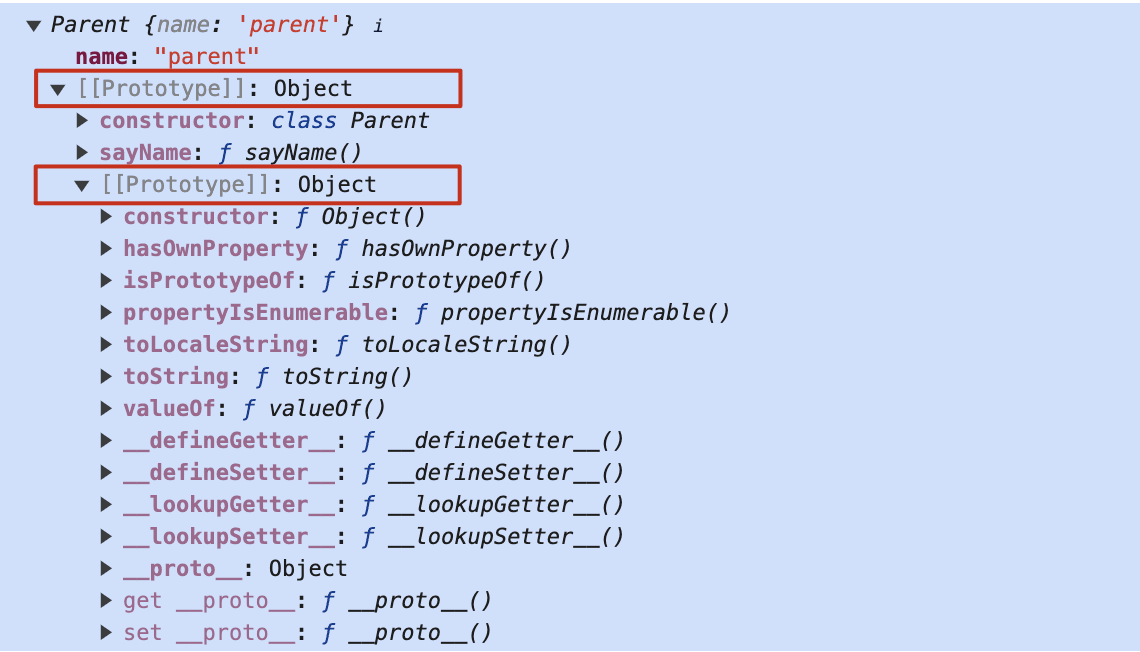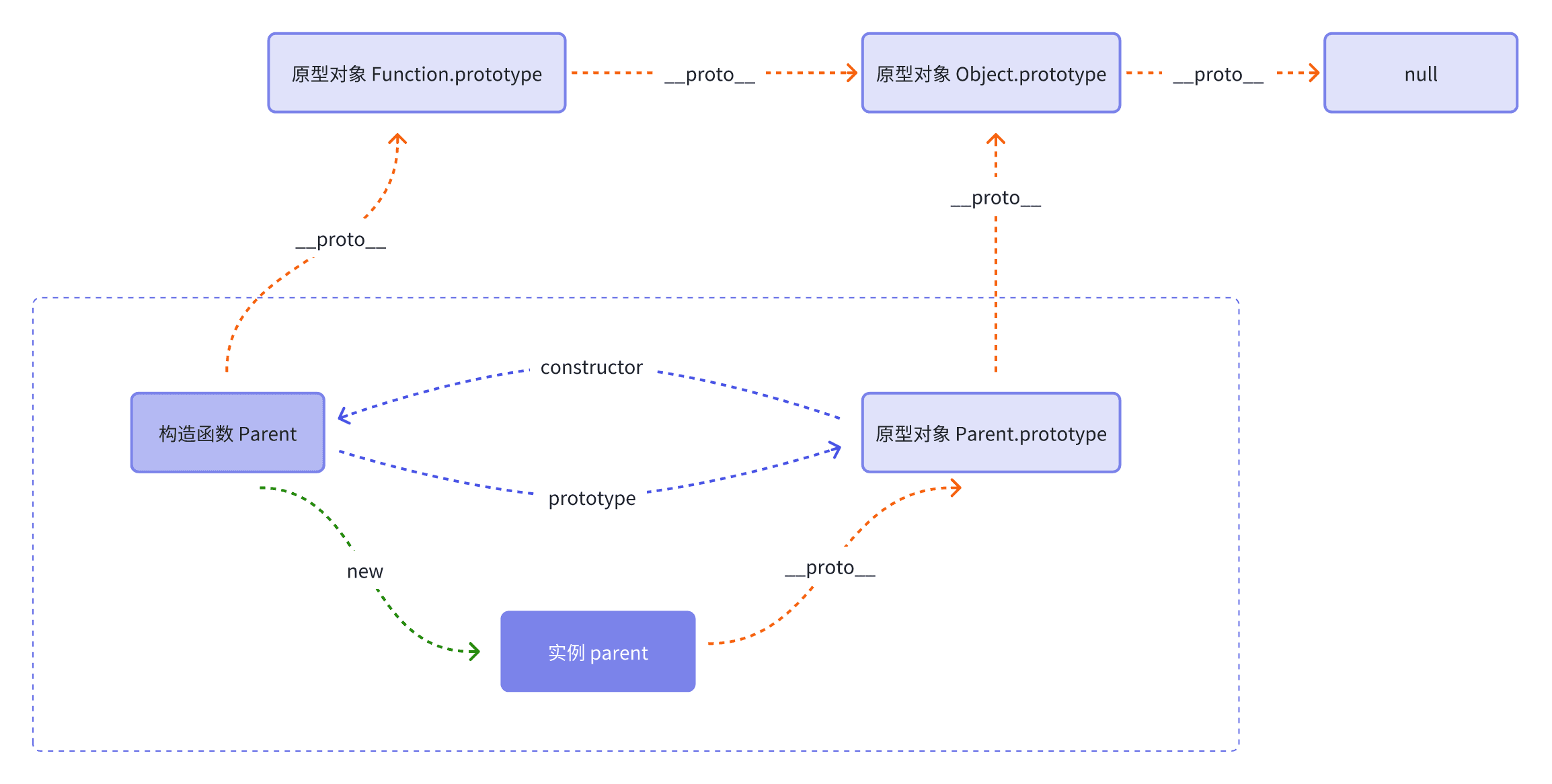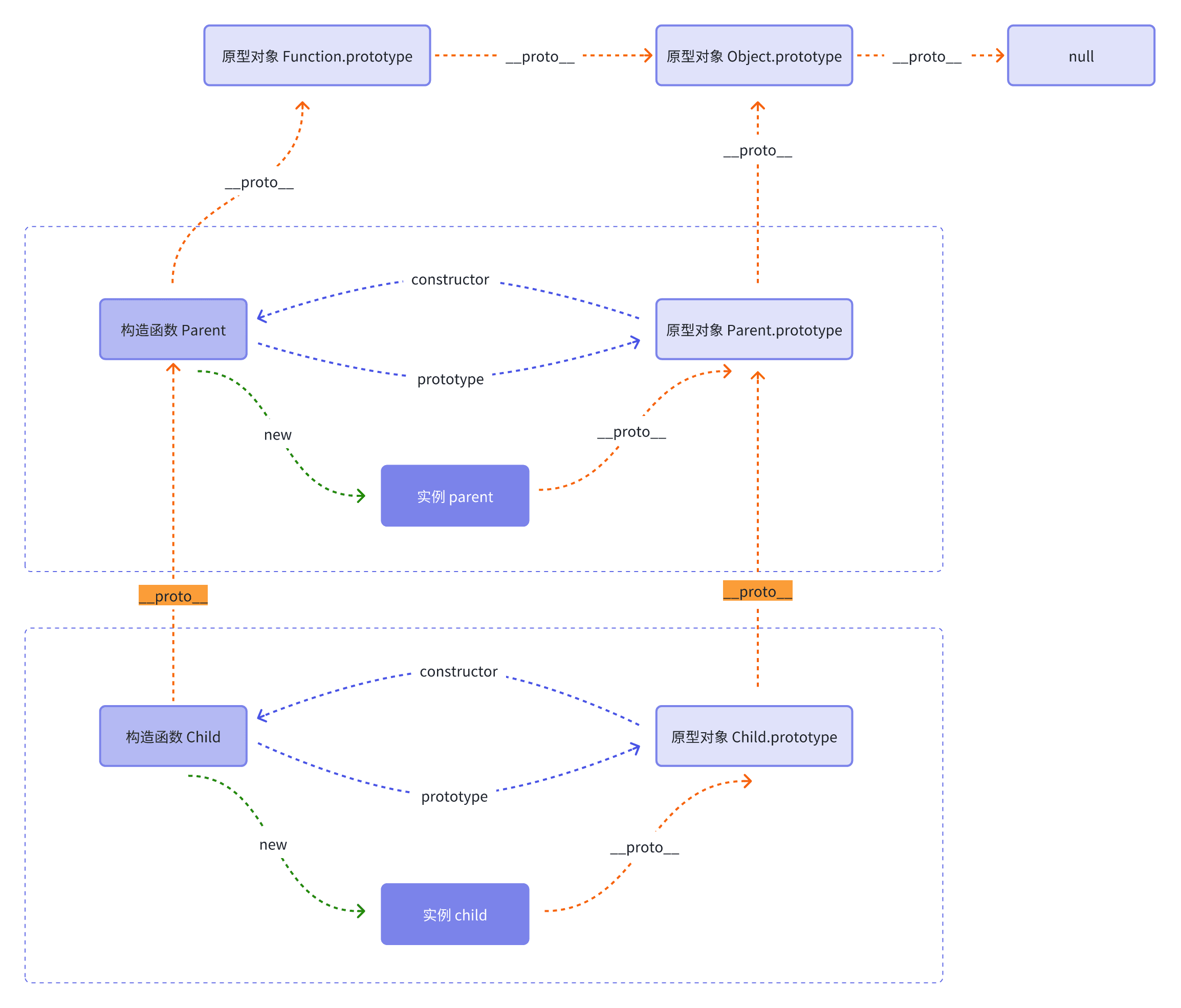ES6 的原型链分析
- Published on
- — 638 Words
- Authors

- Name
- Richard Shih
- @realshiddong
使用 React 的开发者可能都经历过如何实现一个 Class 组件,
class Index extends React.Component {
// render
}
这是因为在 ES6 中,提供了更接近传统语言的写法,引入了 Class(类)的概念,作为对象的模板。通过 class 关键字,可以定义类。Class 可以通过 extends 关键字实现继承,让子类继承父类的属性和方法。
ES6 Class 的原型链分析
我们先利用 class 关键字创建一个 Class 并实例化它,然后分析原型链(项目代码)。
class Parent {
constructor(name) {
this.name = name
}
sayName() {
return this.name
}
}
const parent = new Parent('parent')
console.log(parent)
其打印结果如下,

这段代码有两条原型链:构造器原型链和实例原型链。 原型链分析测试:
// 1.构造器原型链
console.log(Parent.**proto** === Function.prototype) // true
console.log(Function.prototype.**proto** === Object.prototype) // true
console.log(Object.prototype.**proto** === null)
// 2.实例原型链
console.log(parent.**proto** === Parent.prototype) // true
console.log(Parent.prototype.**proto** === Object.prototype) // true
console.log(Object.prototype.**proto** === null) // true
原型链图表表示如下:

ES6 的 extends 继承的原型链分析
利用 class 与 extends 关键字创建一个实现继承的 Class 并实例化,然后分析原型链(项目代码)。
class Parent {
constructor(name) {
this.name = name
}
static sayHello() {
console.log('hello')
}
sayName() {
return this.name
}
}
class Child extends Parent {
constructor(name, age) {
super(name)
this.age = age
}
sayAge() {
return this.age
}
}
let parent = new Parent('Parent')
let child = new Child('Child', 18)
同样,这段代码有两条原型链:构造器原型链和实例原型链。 具体的分析测试:
// 1.构造器原型链
console.log(Child.**proto** === Parent); // true
console.log(Parent.**proto** === Function.prototype); // true
console.log(Function.prototype.**proto** === Object.prototype); // true
console.log(Object.prototype.**proto** === null); // true
// 2.实例原型链
console.log(child.**proto** === Child.prototype); // true
console.log(Child.prototype.**proto** === Parent.prototype); // true
console.log(Parent.prototype.**proto** === Object.prototype); // true
console.log(Object.prototype.**proto** === null); // true
原型链图表表示如下:

结合示例代码与原型链图表,我们可以知道,ES6 extends 的继承主要做了以下工作:
- 将子类构造函数 Child 的原型 proto 指向父类构造函数 Parent
- 将子类实例 child 的原型对象 Child.prototype 的原型 proto 指向父类 parent 的原型对象 Parent.prototype 即图表中添加背景颜色标记的两条线。
- 通过 super 实例化父类,从而使子类构造函数 Child 继承了父类构造函数 Parent 中的属性。